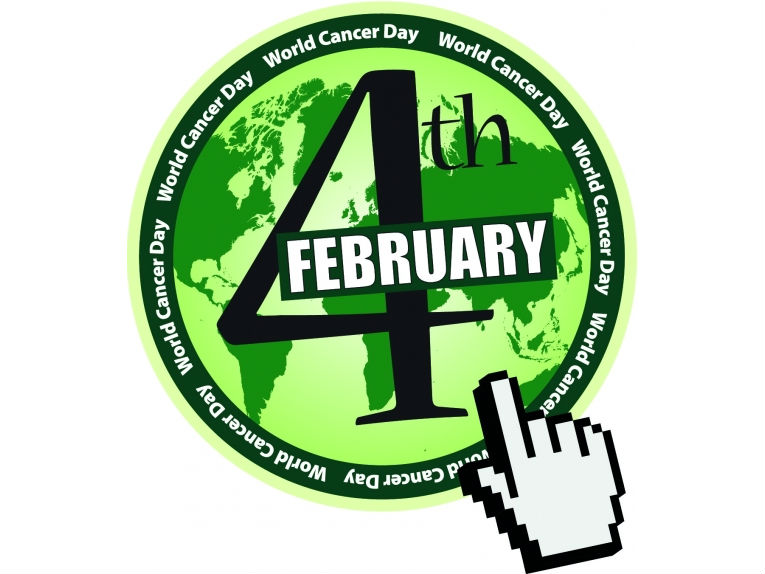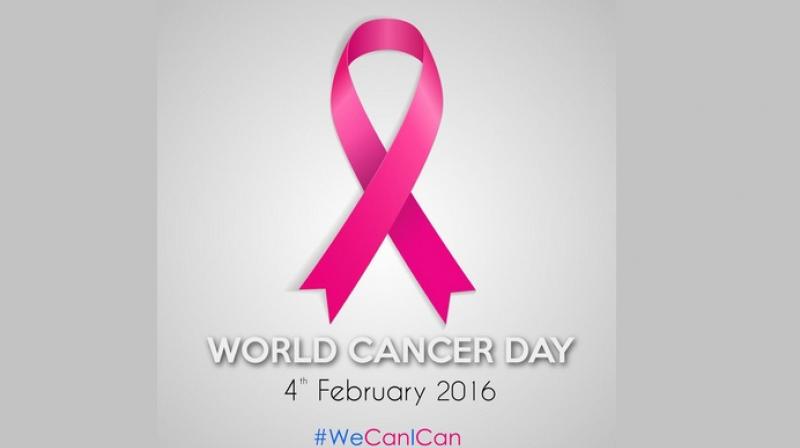World Cancer Day’ is celebrated annually on 4th of February to deepen our understanding of this killer disease. There has been enough research to validate that food acts as the most promising ammunition to fight the battle against cancer.

1) What is the most common cause of cancer?
Cancer is the abnormal growth of cells. There are around 100 types of cancer. The most common types of cancer are – Men: Lung, esophagus, stomach, oral and pharyngeal cancers. Women: Cervix and breast cancers.
Cancer has many possible causes, the prominent ones being –
Genetics: Certain cancers run in families. For example, certain mutations in the BRCA1 or BRCA2 genes greatly increase a person’s risk of developing breast and ovarian cancer.
Smoking: Cigarette smoking accounts for around 30% of all cancer deaths. It is linked with increased risk of these cancers – lungs, larynx, oral cavity, nose and sinuses, esophagus, stomach, pancreas, cervix, kidney, bladder, ovary, colon, rectum and acute myeloid leukemia. Chewing of tobacco, a carcinogen, is linked to dental caries, gingivitis, oral leukoplakia, and oral cancer.
Diet and Lifestyle: Research shows that a poor diet and not having an active lifestyle are the key factors that can increase a person’s risk of developing cancer.
Three things to keep in mind in order to stay cancer free:
- – Get to and stay at a healthy weight throughout your life.
- – Be physically active on a regular basis.
- – Make healthy food choices with a focus on plant-based foods.
2) What are the foods that up the risk of developing cancer?
Some cancers like that of the stomach have a more direct relationship with food. Foods which should be consumed in moderation to avoid the incidence of cancer are –
- Processed meats such as bacon, sausages, lunch meats and hot dogs.
- Choose fish, poultry, or beans instead of red meat (beef, pork, and lamb).
- If you eat red meat, choose lean cuts and eat smaller portions.
- Prepare meat, poultry, and fish by baking, broiling, or poaching rather than by frying or charbroiling.
3) What are the preventive foods that guard against cancer?
In accordance with the most common types of cancers that our country suffers from, the following foods can help:
Oral Cancer: A diet rich in green and yellow vegetables and proper oral hygiene has been shown to offer protection against oral cancer.
Breast Cancer: Reduction of high calorie foods, increased intake of fruits and vegetables and regular physical activity is preventive.
Lung Cancer: Avoid tobacco and stay free from environmental pollutants. Increase intake of vegetables, fruits and beta carotene.
Stomach Cancer:Diets high in fruits and vegetables particularly raw vegetables, citrus fruits, and possibly allium vegetables (onions, leeks, garlic etc.), foods with high levels of carotenoid, high vitamin C intake and consumption of green tea helps prevent stomach cancers.
4) What foods help in healing cancer and how?
Good nutrition is a key to good health. Foods which are rich in Vitamin C, Beta-carotene and Lycopene are known to protect DNA from damages. Research proves that these foods help in healing cancer –
Apple: Apple contains quercetin, epicatechin, anthocyanins and triterpenoids which have anti-inflammatory and antioxidant properties that help to lower the risk of cancer specifically Colorectal cancers. The apple peel is the most nutritious as the majority of Quercetin (80%) is found in it. Other cancers in which apples are known to heal are lungs, breast and stomach.
Blueberries :Blueberries have great antioxidant power, due to the presence of many phytochemicals and flavonoids like Anthocyanins, Ellagic acid and Urolithin. These are known to decrease free radical damage to DNA that leads to cancer. They also decrease the growth and stimulate self-destruction of mouth, breast, colon and prostate cancer cells.
Broccoli, Brussels sprouts, Green Cabbage, Cauliflower, White Turnip, Kale, Green Collard: The Glucosinolates is converted into isothiocyanates and indoles on consumption, which decreases inflammation, one of the risk factors of cancer. Beta-carotene promotes cell communication that helps control abnormal cell growth.
Cherries: Both sweet and tart cherries are a good source of fiber, vitamin C, and potassium. The dark red color comes from anthocyanins, which are antioxidants.
Cranberries: They are high on dietary fiber and vitamin C. They’re very high in antioxidant power, most of which comes from phytochemicals like anthocyanins, proanthocyanidins and flavonols, ursolic acid, benzoic acid and hydroxycinnamic acid. Proanthocyanidins and ursolic acid decrease growth and increase self-destruction of several types of cancer in cell studies.
Grapefruit: An 18th century hybrid of the pummelo and sweet orange. It is grown mainly in the Americas. Its name derives from the fruit’s appearance as it grows: grape-like clusters on trees. Grapefruit contains these naringenin and other flavonoids like limonin and other limonoids, beta-carotene and lycopene (pink and red varieties). Foods containing lycopene lower the risk of prostate cancer.
Green Tea: Since ancient times, tea has been used as both beverage and medicine. Both black and green teas contain numerous active ingredients, including polyphenols and flavonoids, which are potent antioxidants. One class of flavonoids called catechins has recently become the focus of widespread study for their anti-cancer potential. Tea is the best source of catechins in the human diet, and green tea contains about three times the quantity of catechins found in black tea. In laboratory studies, green tea has been shown to slow or completely prevent cancer development in colon, liver, breast and prostate cells. Other studies involving green tea have shown similar protective effects in tissues of the lung, skin and digestive tract.
Winter Squash/Pumpkins: They contain Alpha and Beta carotene which is converted to Vitamin A inside the body. The yellow pigmented lutein, zeaxanthin helps to filter high energy ultra violet rays that can damage our eye’s lens and retina. Lab studies suggest that dietary intake decreases the chances of skin cancer related to exposure from sun.
Walnuts: The major actives found in walnut are – Elligtannins, Gamma-tocopherol, Alpha-linolenic acid, phytosterols and Melatonin. Laboratory studies show that consuming walnuts helps in breast cancer, colon tumor and prostate cancer. The studies also show decreased damage to DNA by regular consumption of walnut.
Source: NDTV



